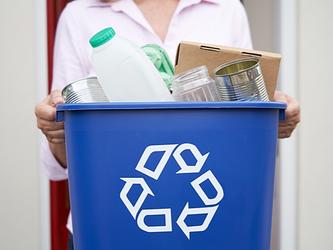Are CMOs still pushing the sustainability agenda?

Anywhere you look, sustainability appears to rank as a key agenda item for the year ahead. But our CMO Barometer study findings tell a very specific story. First and foremost, brand leaders are concerned with external perceptions. Is their brand purpose sustainably framed? Do they have a clear future strategy? How are their comms programmes performing?
Meanwhile, less than half are focused on measuring their carbon impact or gaining certifications ( 50%). Considering nearly 85% of our survey respondents agree that good sustainability practices are a key driver for their clients or consumers, it’s surprising that only a low proportion of this cohort of brand leaders are taking meaningful steps to not only understand their current sustainability score but also to take actionable measures to reduce their impact on the environment.
It’s clear that marketers have acute awareness that sustainability is a real market driver for their consumers and yet tangible, impactful initiatives are still taking a back seat. Why? This new research indicates fear among brands and organisations, fear of truly investing in sustainability marketing, and fear of being accused of ‘greenwashing’. Fear as an emotion brings very primal survival mechanisms: fight or flight. And here, it seems that most organisations have decided to fly. Perhaps the hesitation also comes from a place of simply not knowing where to start, or how to effectively meet these expectations.
Following the widespread protests at the 2023 Cannes Lions Festival, many feel that last year’s Festival was a watershed moment for c-suite brand leaders – it became clear that it’s a time of reckoning for brands to not just position themselves as a sustainable brand, but to take meaningful steps to live up to their brand purpose. This means not just creating beautiful impact-led campaigns but instilling both creativity and science in campaign strategies and product development. This approach will give brands a competitive advantage by being able to understand exactly what is important to their consumers – what they need, their decision drivers, and what they now expect from brands.
I would encourage agencies and companies to collaborate more, to understand how brands can successfully walk this tightrope by bringing more research and insight into the entire comms journey. Such an approach brings authenticity and great doses of humanity – to how brands are perceived and how their product or service meets the underlying motivations and inner needs of their consumers. Effective comms is an art as well as a science, so evaluating how these messages, taglines, campaigns, and activations are emotionally resonating is important and when you are tackling sustainability then it becomes a must, because of its complexity and the scrutiny of their messages.
For example, in the work we presented with Climate Catalyst (CC) at the recent MRS annual conference – ‘Harnessing neuroscience and behavioural science to drive EU policy change’– the brand and comms team at Walnut Unlimited worked with the comms agency to craft a messaging playbook based on neuro- and behavioural science insights, designed to address the complexities of sustainability messaging.
I believe this is the way you can start engaging audiences. Data and insights are here to inspire and trigger great human communications, particularly when your campaign requires behavioural change.
Then, once your messages have been distilled and prioritised according to their emotional strength, you can test them in a creative form. We would encourage testing ideas in the early stages of creativity: the sooner the better for strategy formation. So yes, more research and insight, more comms testing, are key to brands being able to embody what is expected of a sustainable and ethical brand, thus reducing the risk of greenwashing accusations, which eliminates the fear that has taken hold around this equally complex and important topic.
So far, all our research around the topic shows that brands working towards a sustainable business attract greater attention, however, ongoing research programmes are required to get the right attention.
Cristina de Balanzo is consultancy director, Walnut Unlimited, part of Unlimited Group

We hope you enjoyed this article.
Research Live is published by MRS.
The Market Research Society (MRS) exists to promote and protect the research sector, showcasing how research delivers impact for businesses and government.
Members of MRS enjoy many benefits including tailoured policy guidance, discounts on training and conferences, and access to member-only content.
For example, there's an archive of winning case studies from over a decade of MRS Awards.
Find out more about the benefits of joining MRS here.














0 Comments